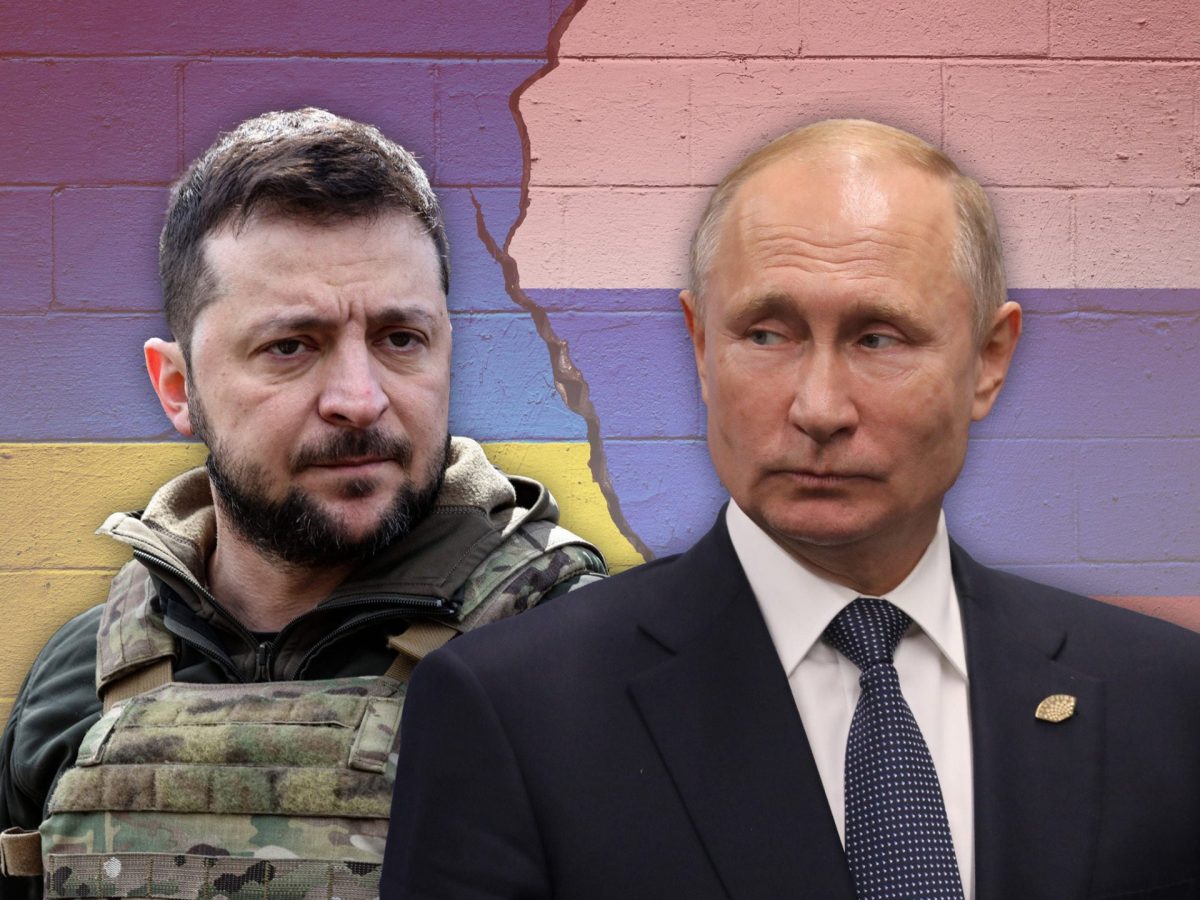The findings contrast with a slight improvement in global opinion toward Russian President Vladimir Putin, in particular among young people, although overall confidence in the Russian leader remains low.
The Pew survey underscores how support for Ukraine is straining among its Western allies and that efforts to isolate Putin are faltering two years into the war.
And the survey comes shortly before President Joe Biden hosts the NATO summit in Washington that will mark the alliance’s 75th anniversary, during which ongoing support for Ukraine will be at the top of the agenda.
Survey respondents were also asked their opinion of NATO, of which the median viewed the alliance favorably, but has ticked down in the U.S., Spain, the United Kingdom and Sweden — which only became a member in March.
More than 44,000 people in 36 countries were surveyed across North and South America, Europe, Asia, the Middle East and Africa.
Overall, an average of 46 percent of respondents said they do not have confidence in Zelensky to do the right thing, compared to 40 percent who said they do.
“We’ve only started asking about him since the war broke out in 2022, and then he received quite high favorability or confidence,” said Moira Fagan, research associate at Pew Research Center specializing in international survey research.
“But since then, it has declined and in many European-allies cases, the confidence in Zelensky has declined significantly over the past year.”
Poland showed the most drastic decline in its opinion toward Zelensky and Ukraine, a reflection of tensions that have played out between Warsaw and Kyiv over trade and border disputes. Poland also hosts between 1 million and 2 million Ukrainian refugees.
The Pew survey found that smaller, but significant decreases of confidence in Zelensky have also occurred in Australia, France, Germany, the Netherlands, Spain, South Africa, South Korea, Sweden and the U.S.
Fagan stated that one possible explanation is fatigue in some of these countries, linked to some respondents’ answers that they view their countries’ support for Ukraine as “enough” or “too much”.
These answers also reflect growing partisan gaps on views toward support for Ukraine, with conservatives and those who identify as right-wing more critical of assistance for Kyiv.
“We also know that people who are right-wing populist party supporters are less likely to have expressed confidence in Zelensky than people who do not support right-wing populist parties in Europe,” Fagan continued, pointing to the growing success of these parties in the recent European parliamentary elections as linked to the attitudes reflected in the survey.
Previous findings from Pew found that among American respondents, there is a stark divide between Republicans and Democrats over support for Ukraine, mirroring criticisms from Republican-lawmakers opposing U.S. military and economic support for Ukraine.
Among respondents in survey results published in May, 49 percent of Republicans and those who lean-Republican said the U.S. provides too much support to Ukraine, compared to 16 percent of Democrats or those who lean-Democrat.
“This is something that we see just huge partisan divides on in the United States and those partisan divides getting larger as well, particularly on the support for Ukraine,” Fagan added.
On the other side, while a median of 65 percent of respondents hold a negative view of Putin since Russia invaded Ukraine in February 2022, opinions have “warmed slightly” in several countries, the survey authors wrote.
In most of the surveyed countries, younger adults are more likely than older people to have a favorable opinion of Russia, the authors wrote. In Peru, for example, 63 percent of adults under 35 said they have a positive opinion of Russia, compared to 31 percent of adults ages 50 and older.
In Germany, confidence in Putin is up 9 points and favorable views toward Russia have increased 5 points since 2023, they wrote. Argentines have also recorded a more favorable view toward Russia, an 11-point increase, and 9 points more confidence in Putin over the past year.
“Rising shares of right-wing populists are confident in Putin in several countries, including France, Germany, Hungary, the Netherlands, Sweden and the UK,” the survey authors wrote.
Still, much of the world remains largely negative toward Russia and Putin, Fagan explained, and categorized the changes as “modest overall.”
“Views of Putin and Russia, sort of as a pair, are both still far more negative than positive around the world. There’s some regional variation there as well, where you get more negativity in Europe, a little bit more favorability in parts of the Asia Pacific, Latin America, for example.”
Attitudes toward NATO are overall positive in much of the world, the survey found, with surprising increases recorded in Turkey and Hungary, Fagan underscored.
“Turkey in particular, which is a country that has historically not been quite favorable towards NATO, favorability has doubled since we last surveyed in Turkey in 2019.”
Forty-two percent in Turkey approve of NATO, up from 21 percent in 2019. (The survey was suspended during the pandemic).
And Hungary also has shown an increasingly positive view toward NATO, with more than 8 in 10 adults saying the alliance is important for their country’s security. This could appear at odds with Hungarian Prime Minister Viktor Orbán’s antagonism toward Europe and Ukraine, and support for Putin and former President Trump, who has threatened to exit NATO.
“What is striking there is that they’ve [Hungary] grown statistically, significantly more favorable toward NATO over the past year,” Fagan said, adding, “Looking at the context of contributions to the war, Hungary ranked last among all 13 of these NATO member countries that we survey in terms of relative contribution to the Ukrainian war effort, but they do not see the organization very unfavorably. So it’s an interesting balance.”
